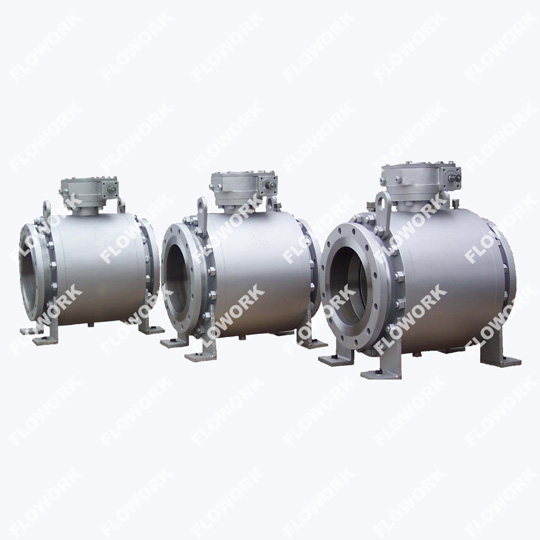What are stainless steel valves used for?
Valves play a key role in a variety of industrial applications, and stainless steel valves have attracted much attention due to their unique properties and diverse applications. Let me tell you about the main uses of stainless steel valves and why stainless steel is chosen as the material of choice in these applications. Stainless steel valves are used in a wide variety of industries, including but not limited to oil and gas, chemicals, pharmaceuticals, food processing and beverage production, and water and wastewater treatment. These industries have diverse needs for valves, including but not limited to corrosion resistance, high strength, long life and good sealing performance. Stainless steel valves can meet these needs and are therefore widely used.

1. The main uses of stainless steel valves
Oil and Gas: In the oil and gas industry, stainless steel valves are used to control and regulate the flow of fluids, including oil, gas and water. These fluids are often exposed to high pressures and temperatures and may contain corrosive components. The corrosion resistance and high strength of stainless steel valves make them ideal for this application, high temperature gate valves.
Chemical industry: Many chemicals used in the chemical industry are corrosive, which requires valve materials to be resistant to the erosion of these chemicals. Stainless steel valves have excellent corrosion resistance and can be widely used in the chemical industry.
Pharmaceutical and Food Processing: The pharmaceutical and food processing industries have strict requirements for equipment cleanliness and sanitation standards. Stainless steel is widely used in both industries as it is a non-toxic material and easy to clean. Stainless steel valves meet the hygiene and safety needs of both industries.
Water and sewage treatment: In the water and sewage treatment industry, valves need to withstand various corrosive media and harsh working environments. The corrosion resistance and long life of stainless steel valves make them ideal for this application.
2. Application case analysis
Oil and Gas Extraction: In the oil and gas extraction process, stainless steel valves are used to control the flow of oil, gas and water. Since these fluids are usually in high-pressure and high-temperature environments and may contain corrosive components such as hydrogen sulfide, valve materials are required to be able to withstand harsh working conditions and have good corrosion resistance. Stainless steel valves are ideal for meeting these requirements, bronze flanged gate valve.
Chemical production: A wide variety of chemicals are involved in the chemical production process, many of which are highly corrosive. This requires valve materials to be resistant to chemical attack. Stainless steel valves play an important role in chemical production due to their excellent corrosion resistance.
Pharmaceutical and food processing: The pharmaceutical and food processing industries have strict requirements for equipment hygiene standards. Stainless steel is widely used in both industries as a non-toxic and easy-to-clean material. Stainless steel valves meet the hygiene and safety requirements in pharmaceutical and food processing processes, api602 forged gate valve.
Water and sewage treatment: In the water and sewage treatment process, valves need to withstand various corrosive media and harsh working environments. The corrosion resistance and long life of stainless steel valves make them ideal for this area.

3. Analysis of the advantages of stainless steel valves
High strength and excellent mechanical properties: Stainless steel valves can withstand harsh working conditions such as high pressure an high temperature, ensuring stability and reliability in various application scenarios.
Long life and low maintenance costs: Stainless steel valves have a long service life, reducing replacement frequency and maintenance costs, bringing long-term economic benefits to the enterprise.
Good sealing performance: Stainless steel valves use advanced sealing technology and materials to achieve a tight sealing effect and effectively prevent leakage and penetration, fugitive emission gate valve.
Green environmental protection and sustainability: Stainless steel materials are recyclable, in line with the concepts of green environmental protection and sustainable development, and reduce the impact on the environment.
Compact structure and easy operation: The stainless steel valve has a compact structure and easy operation, making it easy to install, maintain and inspect, improving work efficiency and ease of operation.
All Of Our Videos By The Link Address: https://www.youtube.com/@floworkinc.5796/playlists

4. This is my summary based on more than ten years of experience.
With the continuous advancement of technology and changing industrial needs, stainless steel valves are expected to make more breakthroughs in material innovation, intelligent development, and multi-functional integration in the future. Whether in emerging fields or traditional industries, stainless steel valves will continue to exert their unique advantages to bring more efficient and environmentally friendly solutions to all walks of life and promote the sustainable development of industry.









